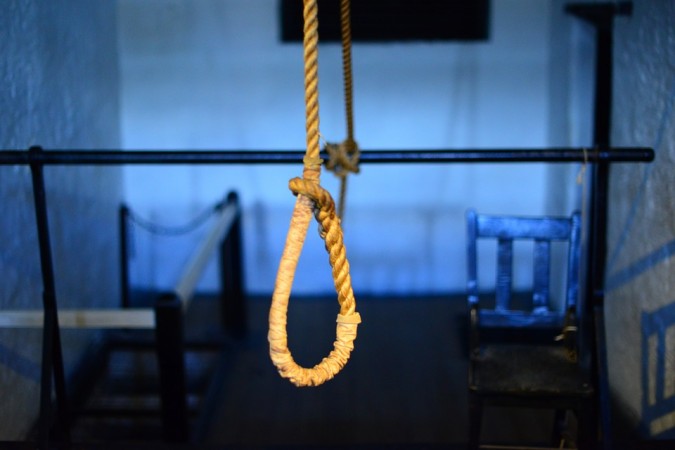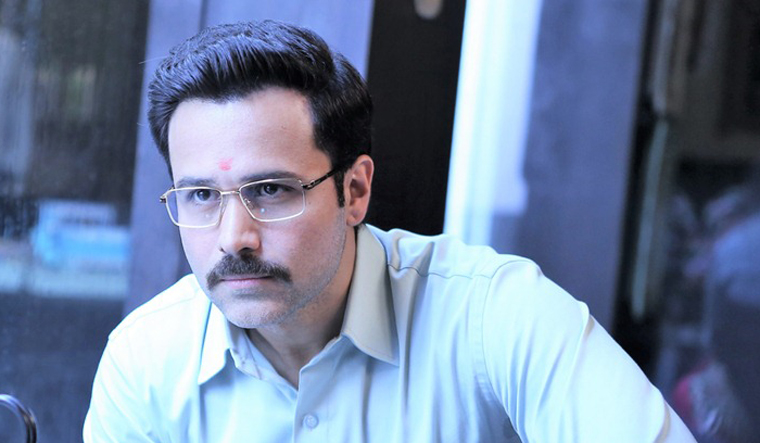Nerve-wracking to start from the ground up all over again, says Emraan Hashmi
By Karishma Upadhyay
- Published 14.01.19, 8:24 PM
Emraan Hashmi's film takes on the Indian education system
A still from the film, Why Cheat India
It’s rare for an early morning film interview to start on time. So imagine our surprise when we found Emraan Hashmi at the venue waiting for us. “Even after all these years, this is the one bad habit I haven’t been able to change. I am always on time,” Emraan says with a laugh.
We met Emraan, who is acting in and co-producing Why Cheat India that releases this Friday. The film’s title was changed from Cheat India after the Central Board of Film Certification (CBFC) reportedly raised objections to the earlier title. The change was announced just hours after we spoke to Emraan at a studio in Bandra close to his Pali Hill home in Mumbai. We chatted about his new innings as an actor, which includes working in different mediums.
Karishma Upadhyay:
Why Cheat India takes a close look at our education system. What kind of a student were you?
Emraan Hashmi:
Not very academic — I didn’t particularly like school or college. I scraped through every exam but never failed. I’d open my books at the last minute and it was a classic case of feeling like a zombie for eight hours a day for those 10 years where you have nothing but facts doled out to you day in and day out. Later on in life, you realise that there were some other things you should have learnt, which we didn’t. We weren’t future-ready for sure, and still aren’t.
Another thing I feel which is missing, which comes in the domain of spirituality, is how to manage your mind. That is the most important thing that schools don’t teach you. Fundamentally, the education system should be teaching you two things — how to live and how to make a living. Ours only teaches us how to make a living, and they’re really bad at that. It doesn’t even go into how to live, and that’s the reason why depression rates are soaring. Suicides are soaring because of the pressure, and it’s all about marks and grades. It’s a system that pits winners against losers, there should be only winners. What kind of education system makes a 10-year-old feel like a loser because they can’t mug up stuff?
This is why I put my son into the IB (International Baccalaureate) board, which is a slightly more evolved form of education, where it’s not about memorising and they let kids be kids. There is very little homework, and I feel homework should be completely abolished. We should take a page out of the system that Finland adopted. There’s a documentary on how they came from the bottom rung to become the No. 1 education system in the world over 60 years, and the first thing they did was to remove homework. The reason is it has a huge psychological impact on kids, and kids can be kids, they can enjoy life.
Karishma Upadhyay:
While making this film, was there any one thing that you found out which completely blew your mind?
Emraan Hashmi:
Just how organised the cheating industry around our education system is. The fact that there are professional doctors and IIT engineers who go and give examinations for these undeserving students who just sit at home and get 95 per cent-plus and become engineers and doctors themselves. These are the people building bridges and flying planes, that’s what’s happening in our country, and it’s going from bad to worse. That was a big revelation.
Karishma Upadhyay:
There’s been a lot of talk about this film being an introduction to Emraan Hashmi 2.0. What is different?
Emraan Hashmi:
I think I’ve tried to shed a certain image, and fade it out slowly. I did certain kinds of films early on, which I got accepted for. The films were doing well but it was not very fulfilling. I just felt I needed to do more, and it’s why I became a producer and took on a subject that’s never been explored before. I know I’ve taken the right decision, but it’s nerve-wracking when you start from the ground up all over again.
Karishma Upadhyay:
But you’ve been trying to make this shift for a few years now. Shanghai, for example, was so different from your earlier films.
Emraan Hashmi:
You’re as good as the scripts that are offered to you. Had Shanghai come out right now, it would have done a lot better. So, I’m happy with these higher-concept films that are coming out now, and I’m willing to explore it and start my journey afresh.
Karishma Upadhyay:
Your earlier attempts clearly didn’t stick. Weren’t you tempted to just go back to the tried and tested?
Emraan Hashmi:
No. I think that kind of cinema has ended for me in a way; it doesn’t have the impact it used to. There was a time when thriller-erotica worked. If there was a list of reasons why people watched the film, the story would probably come third. The first would be erotica, but now you get that from phones. It’s definitely lost its zing. You can just strike that off the list, or you’d better have a great story. I can’t wait around for a good story with erotica to come three times a year, and do those. I need to start exploring other things, and this was the obvious choice. I felt I should start afresh, and play characters in films and just see how it plays out with the audience.
Karishma Upadhyay:
You’ve also turned producer with this film. Is there something you learnt as a producer that you didn’t know?
Emraan Hashmi:
The amount of money they make (laughs). But seriously, it is a tricky job. Obviously, on this film, the work has been divided amongst two other producers, so it’s not as much stress as it would be. But yes, it’s a tough job because it’s managing a lot of things and there are crucial decisions that one has to make and then stand by them.
Karishma Upadhyay:
Later in the year, we’ll see you in a new medium with Bard of Blood on Netflix, for which you don’t have to worry about Friday release, or what the distributors earn. Is that freeing?
Emraan Hashmi:
It is, and that’s why you can explore so many new concepts there. In Bollywood, because of acceptance and the box office, you have to play within the confines of that box. It’s not always necessary, but 90-95 per cent of commercial films that go to theatres have to have those four-five songs, and other such rules. But with OTT platforms, you don’t need to abide by those rules. You can literally let your creativity soar and not be bogged down by these things. It’s liberating for everyone creatively associated with these projects and web shows are really good.















